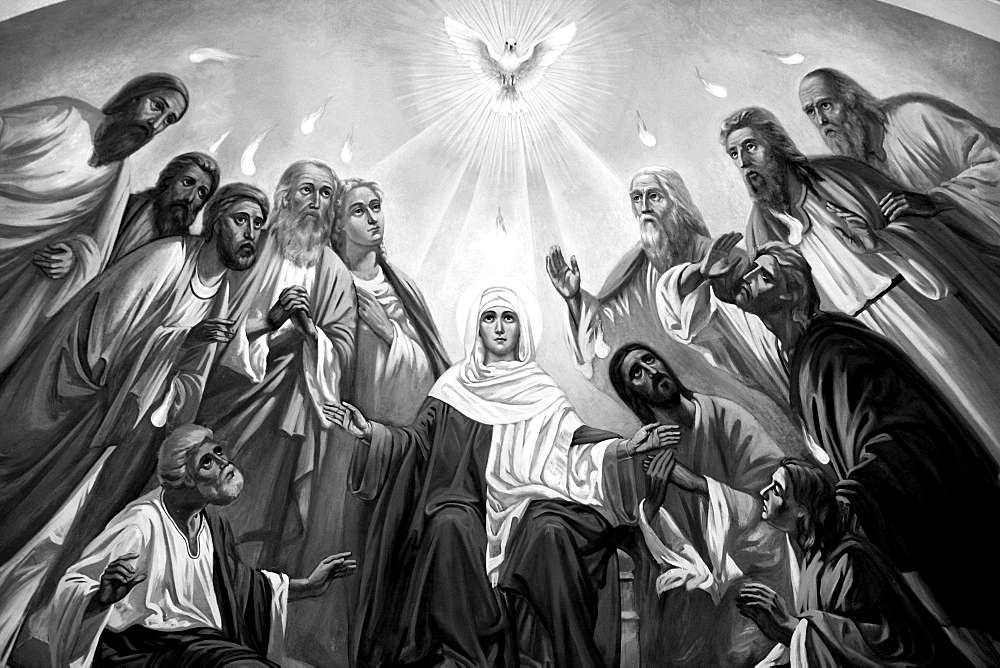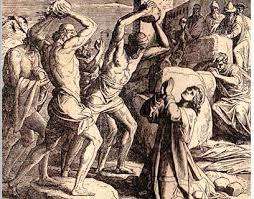

Church life for Edification of Christians
Dr. Shaibu Abraham
The term “the church” is used to apply to all those whom Christ died to redeem, all those whoare saved by the death of Christ. Jesus Christ himself builds the church by calling his people to himself. Moreover, God has called the church out of the world for a purpose. He intended for his creation to have fellowship with him. When that fellowship was broken, God called the people of Israel; but when Israel failed, God himself entered fully into human history in the birth of Jesus Christ. Jesus then called twelve disciples and formed the nucleus of God's new people, the church, which has been called into being to be the means by which all of humanity is restored to fellowship with its creator (Acts 1:8; Matt. 28:18-20).Therefore, members need to maintain close fellowship within the church and also grow spiritually to carry out God's purposes in the world.These objectives are achieved through nurture and edification within the church.
The Scripture outlines the purposes of the church in terms of ministry to God, ministry to the world, and ministry to believers. Initially, in relationship to God, the church’s purpose is toworship him. Paul directs the church at Colossae to “sing psalms and hymns andspiritual songs with thankfulness in your hearts to God” (Col. 3:16). Worship in the church is in itself fulfilling the major purpose of the church with reference to its Lord. Secondly, the purpose of the church in terms to the ministry to the World is evangelism and the work of mercy. Jesus told his disciples that they should “make disciples of all nations” (Matt. 28:19). Along with the work of evangelism, the scripture mandates us to involve in the ministry of mercy, a ministry that includes caring for the poor and needy in the name of the Lord. Jesus tells us, Love your enemies, and do good, and lend, expecting nothing in return;.. Be merciful, even as your Father is merciful (Luke 6:35–36). The third purpose, the ministry to believers includes nurture and edification. According to Scripture, the church has an obligation to nurture believers and build them up to maturity in the faith. Paul said that his own goal was not simply to bring people to initial saving faith but to “present every man mature in Christ” (Col. 1:28). And he told the churchat Ephesus that God gave the church gifted persons “to equip the saints for the work of ministry, for building up the body of Christ until we all attain to the unity of the faith and of the knowledge of the Son of God, to mature manhood, to the measure of the stature of the fullness of Christ” (Eph. 4:12–13). Therefore, edification is one of the vital aspects of the existence of the church.
Edification
So what is edification? To edify is to improve, instruct, or enlightenmorally or spiritually.Edification, therefore brings spiritual growth. 2 Peter 1:5-8 says, "For this very reason, make every effort to supplement your faith with virtue, and virtue with knowledge, and knowledge with self-control, and self-control with steadfastness, and steadfastness with godliness, and godliness with brotherly affection, and brotherly affection with love. For if these qualities are yours and are increasing, they keep you from being ineffective or unfruitful in the knowledge of our Lord Jesus Christ." In essence, Peter is talking about edification. As Christians, we are expected to grow spiritually and to build one another up (1 Thess 5:11; Rom 14:19). Edificationis for the glory of God and the good of His people.
Paul's first letter to the church at Thessalonica, he exhorted them to "edify one another" (1 Thes. 5:11). The word "edify" comes from the Greek word oikodomeowhich means toliterally as "the building of a house."The idea Paul had in mind was that Christians should "build" one another up in the faith. The Greek-English Lexicon of the New Testament comments that it is "the act of one who promotes another's growth in Christians wisdom, piety, holiness, happiness". One of the highest duties that a Christian has is to encourage others. In a world filled with pessimism, violence and despair, our need for encouragement is great. It is all too easy to discourage and neglect others but the believers are called to build up and nurture one another.Even though there are various activities and practices that bring edification of believers in the church, here we shall focus on some of the most significant elements which are indispensible for the healthy growth of Christians.
Teaching of the Word
The word of God as preached and taught brings salvation and edification. We are being born again by the word of truth (Jam 1:18). Similarly, Peter says,“You have been born anew, ..through the living and abiding word of God” (1 Peter 1:23). Moreover, once we have become Christians, it is the word of God that is able to build us up (Acts 20:32). It is necessary for spiritualnourishment. It is the word of God that gives direction and guidance as a “lamp” to our feet and a “light” toour path (Ps. 119:105). In the midst of an ungodly culture Scripture gives wisdom andguidance like “a lamp shining in a dark place” (2 Peter 1:19).
Jesus says in Matthew 4:4, “Man shall not live on bread alone,but on every word that proceeds out of the mouth of God”. Here Jesus indicates that our spiritual life is maintained by daily nourishment with the Word ofGod. To neglect regular reading of God’s word is as detrimental to the health of oursouls as the neglect of physical food is detrimental to the health of our bodies. Apostle Peter similarly encourages the Christians to long for the pure spiritual milk, that by it we may grow up to salvation” (1 Peter 2:2). The “pure spiritual milk” here refers to the word of God. Other passages also indicate that the word of God is sufficient to equip us for living the Christian life. Paul writes to Timothy, “All scripture is inspired by God and profitable for teaching, for reproof, for correction, and for training in righteousness, that the man of God may be complete, equipped for every good work” (2 Tim. 3:16–17).
In the New Testament the concept of mutual edification through word of God is applied to the corporate body of the Church. Mutual edification involves helping one another to grow into Christ-likeness, and it requires the participation of all members of the church. Teaching and preaching improve our understanding of God and grow in spiritual maturity; encouragement promotes conduct that develops Christ-like character. When we exhort one another and hold one another accountable, we are prompted to engage in activities that promote godliness.
Use of Spiritual Gifts
Another way in which edification takes place in the church is through the use of spiritual gifts. Paul tells us in Ephesians 4:12 and repeatedly in 1 Corinthians 14:1-26 that edification is one of the reasons that spiritual gifts are given to believers. Paul offers instruction on spiritual gifts in Rom. 12:6-8; 1 Cor. 12:4-11, 28-30; Eph. 4:7-12.Spiritual gifts are unusual manifestations of God's grace (charis) and its purpose was always the edification of believers. The exercise of a spiritual gift implied service in thec hurch. In instructing Christians on the exercise of these gifts, Paul is concerned to stress their practical nature. The Spirit bestows his charismata for the edification of the church, the formation of Christian character, and the service of the community. The reception of a spiritual gift, therefore, brought serious responsibility, since it was essentially an opportunity for self-giving in sacrificial service for others
All of the various members have been given gifts. These gifts are not for personal satisfaction, but for the edification (building up) of the body as a whole. While there is diversity of gifts, there is not to be division within the body. Some of these gifts are more noticeable than others, but theyare not therefore more important (12: 14-25). No one gift is for everyone(12:27-31); therefore,each member needs the others, and each is needed by the others.Peter also views spiritual gifts as channels through which mutual edification takes place; he says, “As each has received a gift, employ it for oneanother, as good stewards of God’s varied grace” (1 Peter 4:10). When gifts are usedfor one another in the church, God’s grace is thereby dispensed to those for whomGod intended it. Great blessing will come to the church through proper use of spiritualgifts, as the church follows Paul’s command to use the gifts to “strive to excel inbuilding up the church” (1 Cor. 14:12).Moreover, we should remember thatthese gifts are distributed not only to ministers or a limited number of Christians, but toall believers who have the Holy Spirit within them (1 Cor. 12:7, 11; 1 Peter 4:10).
Fellowship
A third element that brings edification within the church is fellowship of the members. Fellowship (koinonia) in the NewTestament refers to a religioussharing, a religious commonness (1 Cor. 1:9; 10:20; 2 Cor. 6:14;Gal. 2:9; 1 John 1:3). Fellowship is a heartfelt sense of brotherhood, of closeness, ofbelonging to one family in the Lord (Phil. 2:1). We should not neglect ordinary Christian fellowship as it is a valuable means of edification within the church. The early church “devoted themselves to theapostles’ teaching and fellowship to the breaking of bread and the prayers” (Acts2:42). And the author of Hebrews reminds believers, “Let us consider how to stir upone another to love and good works, not neglecting to meet together as is the habit ofsome, but encouraging one another..” (Heb. 10:24–25). In the fellowship of believers, friendship andaffection for one another will grow, and Jesus’ injunction that we “love one another”will be fulfilled. Moreover, as believers care for one another, they will“Bear one another’s burdens, and so fulfil the law of Christ” (Gal. 6:2).It would also be healthy for Christians to recognize that a measure of God’s grace is experienced when Christians talk together and eat together, enjoying one another’s fellowship.
Paul views the churchas a family when he tells Timothy to act as if all the church members were members of a larger family: “Do not rebuke an older man but exhort him as you would a father;treat younger men like brothers, older women like mothers, younger women likesisters, in all purity” (1 Tim. 5:1–2). God is our heavenly Father (Eph. 3:14), and weare his sons and daughters. We are thereforebrothers and sisters with each other in God’s family (Matt. 12:49–50; 1 John 3:14–18).
In 1 Corinthians 12,the metaphor of body is used for the church. Thisimage of the body of Christ speaks of the interconnectedness between all the persons who make up the church. Christian faith is not to be defined merely in terms of individual relationship to the Lord. There is no such thing as an isolated, solitary Christian life. Paul stresses the dependence of each believer upon every other. He emphasizes that“all the members of the body, though many, are one body” (v. 12). All believers, whether Jew or Greek, have been baptized by one Spirit into onebody, and have been made to drink of one Spirit (v. 13). There isa mutuality; each believer encourages and builds up the others. In Ephesians 4: 11-16, Paul develops this idea of the value of each one’s contribution to the others. He concludes:“Speaking the truth in love, we are to grow up in every way into him who is the head, into Christ, from whom the whole body, joined and knit together by every joint with which it is supplied, when each part isworking properly, makes bodily growth and upbuilds itself in love.” Moreover, members of the body are to bear one another’s burdens and restore those who are found to be in sin (Gal. 6:1-2). In some cases, dealing with sinful members may involvegentle restoration. At times, it may involve barring from the fellowship those who are defiling it.
Christian Giving
A fourth aspect that brings edification within the church is Christian giving. In the New Testament, edification and fellowship sometimes means sharing goods. In 2 Corinthians 8:4 and Philippians 1:5 it refers to giving gifts to help needy fellow Christians. The early church had a truly radical fellowship. In Acts 4:32 we read, "Now the full number of those who believed were of one heart and soul, ... they had everything in common." They shared their hearts, souls and their property. Some of the Christians sold property and gave the proceeds to the apostles for the needs of fellow Christians. The early church gave readily to the needs of poor Christians, so that “There was not a needy person among them” (Acts 4:34).
It is most pleasing to God when gifts of sharing are accompanied by giver’s ownpersonal commitment to God, as was the case among the Macedonians who“first...gave themselves to the Lord and to us by the will of God” (2 Cor. 8:5), and then gave to help the poor Christians in Jerusalem. When giving is carried out joyfully, “not reluctantly or under compulsion,” there is the great reward of God’sfavour with it, “for God loves a cheerful giver” (2 Cor. 9:7).Paul views the giving to the Lord’s work as spiritual sowing that will lead to a harvest: “he who sows sparingly will also reap sparingly, and he who sows bountifully will also reap bountifully” (2 Cor. 9:6).As wegive rightly God will bless us: God is able to make all grace a bound to us that always having all sufficiency in everything, and may have an abundance for every good deed (2 Cor. 9:8). Paul tells that, we will be enriched in every way for great generosity which through us will produce thanks giving to God (2 Cor. 9:11). Therefore giving blesses the recipient in that his or her needs are met and faith and thanksgiving for God’s provision are increased; it blesses the giver because “God loves a cheerful giver”. Generous sharing will grant an abundant spiritual harvest, and brings blessing to many since it produces a harvest of many thanksgivings to God (2 Cor. 9:12).
Summarising our discussion, the church is the representative of God in the world to carry out God's eternal purpose of gathering all humanity unto him. Moreover, God's plan for a believer is to grow in the stature of his son Christ to become "light of the world and salt of the earth". Edification through the word of God, use of spiritual gifts, fellowship and sharing of our resources would help to strengthenourselves and achieve divine purposes in the world .


















